
Kurdistan Region President Nechirvan Barzani holds meetings with high-profile delegations in Munich on February 16, 2024. Photos: Kurdistan Region Presidency.
ERBIL, Kurdistan Region - Kurdistan Region President Nechirvan Barzani on Friday held a series of meetings with officials from several countries on the sidelines of the Munich Security Conference (MSC) in Germany, which this year is taking place under the motto “lose-lose” and with a warning against a trend of nations moving away from the spirit of global cooperation.
In a meeting with a United States Senate delegation led by Senator Dan Sullivan, Barzani discussed the evolving relationship between Washington and Baghdad.
“Both sides reaffirmed their commitment to strengthening US-Iraqi relations within the framework of their strategic agreement and discussed the recent attacks on coalition forces in Iraq and the security and military responses,” read a statement from the Kurdistan Region Presidency.
They “agreed on the importance of ensuring the safety and security of coalition forces and diplomatic envoys in Iraq. They emphasized the need to prevent armed groups from putting at risk the peace and stability of Iraq and threatening the sovereignty of the country,” it added.
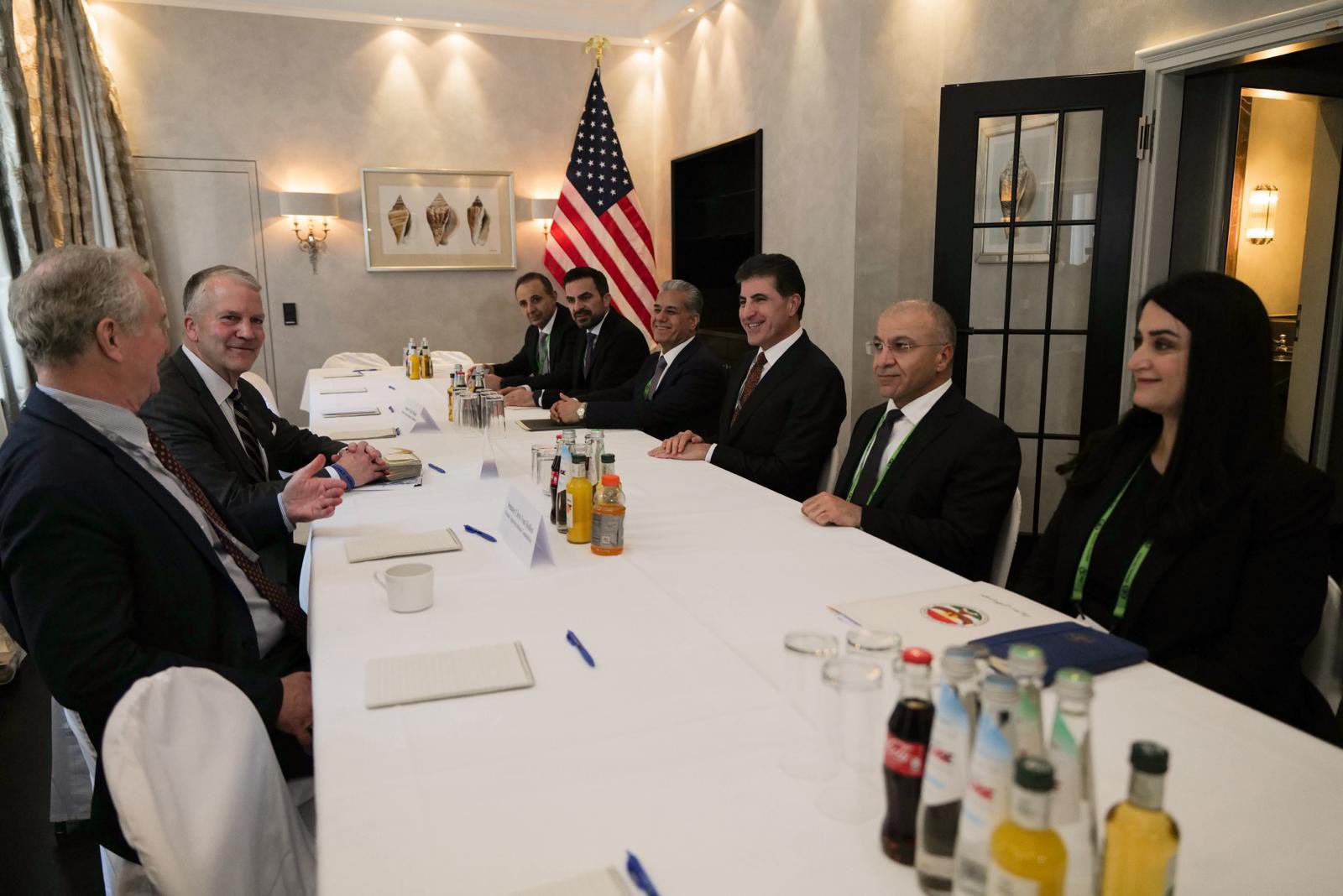
US coalition troops have been targeted by pro-Iran militia groups over 165 times since mid-October. The Islamic Resistance in Iraq, an umbrella group of militia groups aligned with Tehran, have claimed responsibility for most of the attacks. Three US soldiers were killed when these groups hit American forces in Jordan earlier this month. In response, Washington has carried out several retaliatory strikes against the groups in Syria and Iraq.
Baghdad is angry about Washington’s military actions on its soil outside of the mission against the Islamic State (ISIS) and the Iraqi government has repeatedly said it wants to end the presence of foreign military forces in the country. The two are in talks about the future of the global coalition against ISIS in Iraq, but the Pentagon has said there is no timeline for a withdrawal.
“U.S. forces are in Iraq at the invitation of the Government of Iraq. We remain in close consultation with the Iraqi government when it comes to U.S. force presence in Iraq, in particular the safety and security of those forces. No timelines have been set in regards to U.S. force levels,” Major Pete Nguyen, US Department of Defense spokesperson, told reporters on Tuesday.
Kurdish leaders have said the coalition is still needed to help combat the terror threat.
In Barzani’s meeting with the Americans in Munich, “The Senate delegation reiterated the ongoing support of the United States to Iraq and the Kurdistan Region in their fight against terrorism, particularly the threat posed by ISIS and other security challenges. Furthermore, they emphasized the significance of their country’s relations with Iraq and the Kurdistan Region. President Barzani expressed his gratitude to the US Congress and Senate for their support for Iraq and the Kurdistan Region,” the presidency stated.
President Barzani on Friday also met with British Defense Secretary Grant Shapps, discussing ongoing security challenges in the Middle East.
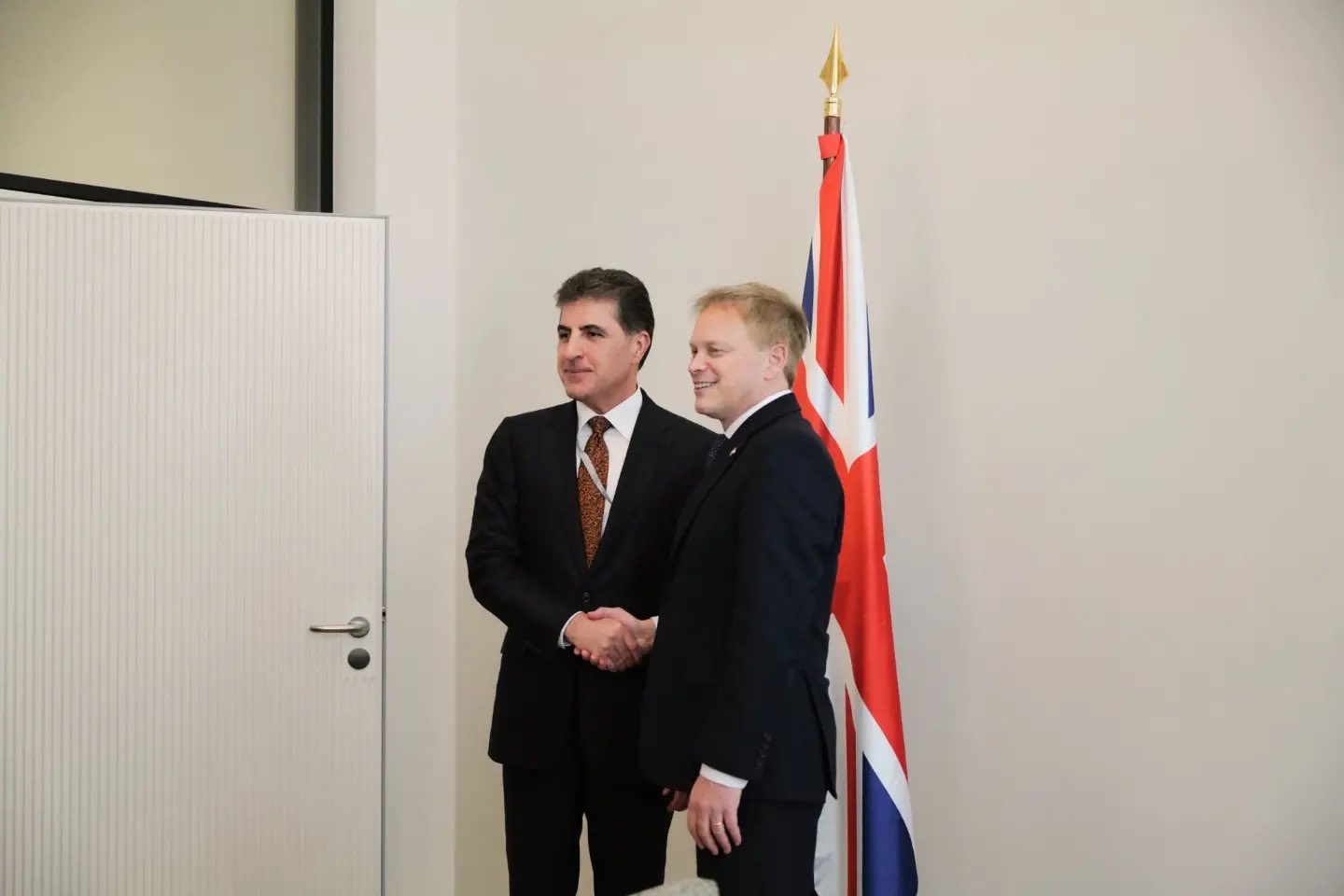
“Both sides stressed that the conflict [in Gaza] must not be allowed to spread to the entire region, and agreed that Iraq should refrain from chaos and conflict,” said the Kurdistan Region Presidency in a statement.
President Barzani thanked the United Kingdom for its support for Iraq and the Kurdistan Region in the fight against ISIS and “stressed the need to promote mutual cooperation,” the statement noted.
The Munich Security Conference (MSC) is a global meeting for discussions on international security policy. The event brings together 450 high-profile and senior decision-makers and thinkers, including heads of state, ministers, as well as leading figures from non-governmental organizations, industry, media, academia, and civil society. It was first launched in 1963 and initially served as a space for discussions focusing on Western policy against the backdrop of the Cold War.
Dilshad Shahab, spokesperson for the Kurdistan Region Presidency, told reporters in Munich that the Region was treated as a major player at the conference when it came to developments in the Middle East.
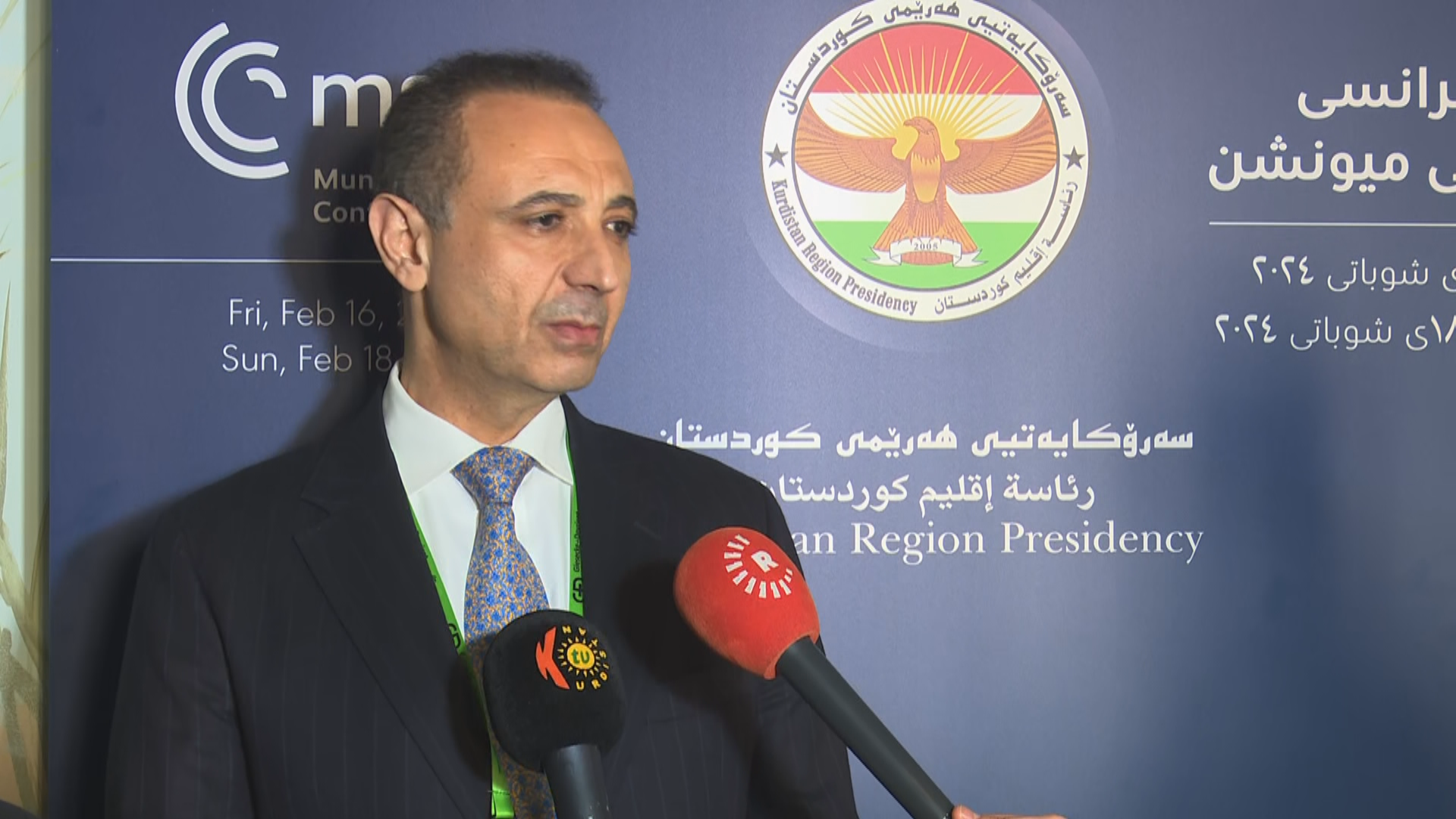
“Treating Kurdistan Region as one of the main players when it comes to equations in the Middle East, especially in Iraq, is a great consideration for the Kurdistan Region’s position and role,” he said.
Shahab noted that the Region has taken part in the previous editions of the conference “actively and effectively.”
“At an international level, the Kurdistan Region will support all global international and regional efforts to preserve the security and stability of the region. Our message to our neighbours is that the Region has not been and will not be the source of threat to them,” said the spokesperson.
President Barzani also met with Turkish Foreign Minister Hakan Fidan on Friday.
“I had a constructive meeting with Foreign Minister @HakanFidan of Türkiye today in Munich. We discussed further strengthening the Kurdistan Region and Iraq’s relations with Türkiye as well as addressing pressing security concerns facing the wider region,” President Barzani said in a post on X.
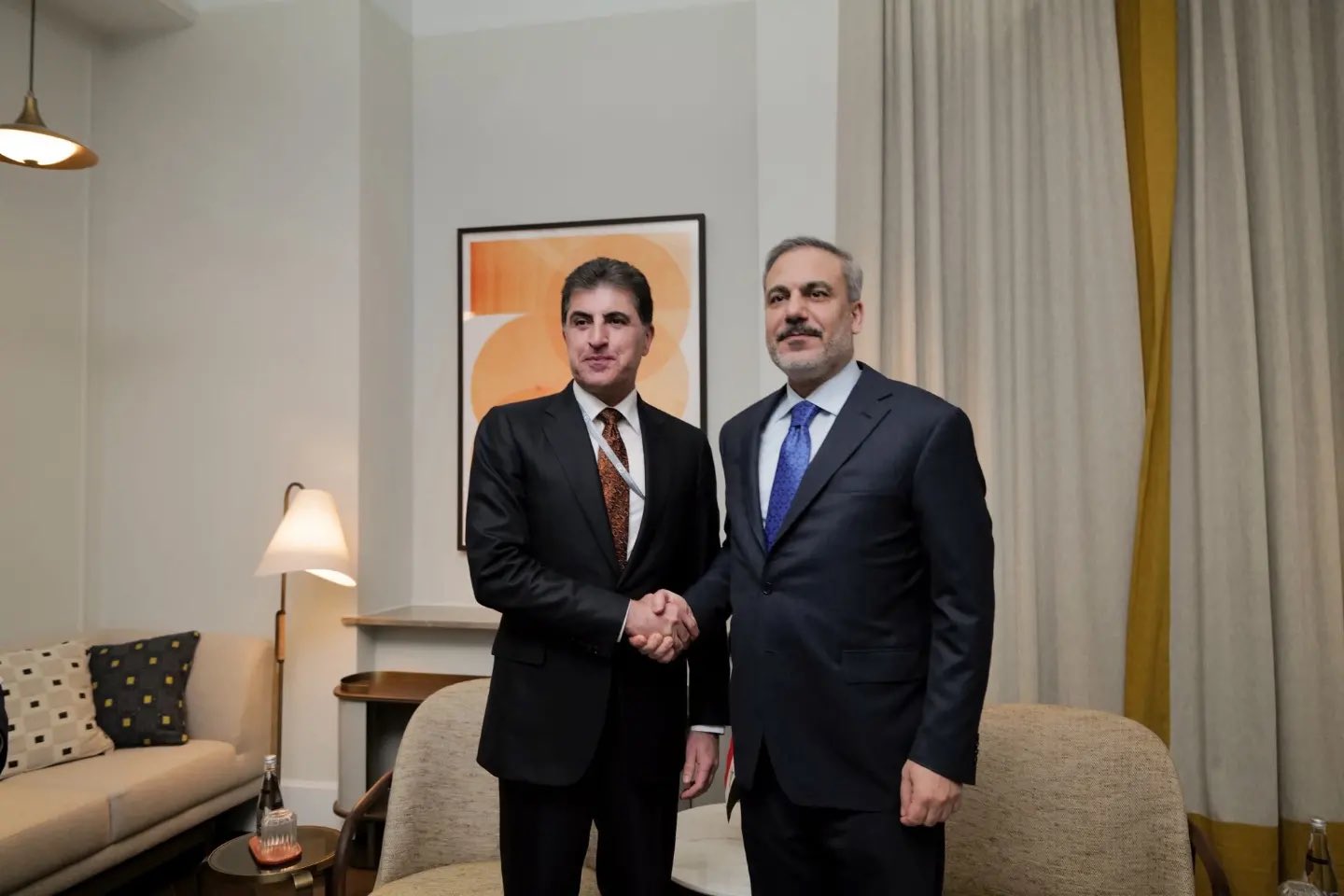
A statement from his office says they "stressed the importance of maintaining security and stability and Turkey's cooperation with Iraq and the Kurdistan Region to combat threats to the security and stability of both countries. They also discussed the efforts and steps to resume the exportation of the Kurdistan Region's oil.”
"The meeting also discussed the fight against terrorism, joint work of regional countries to maintain peace and stability and other issues of common interest," it added.
Ankara and Erbil enjoy close economic ties and most of the Kurdistan Region's crude oil is marketed through Turkey's pipelines. However, the flow of Kurdish oil has been suspended since March last year due to an arbitration case between Ankara and Baghdad. Despite ongoing talks, oil exports have yet to be resumed.
President Barzani and United Nations Secretary General Antonio Guterres also held a meeting on the sidelines of the MSC.
They agreed that “Iraq’s security and sovereignty must be protected and Iraq must not be allowed to be dragged into the regional conflicts,” according to a statement from the Kurdistan Region Presidency.
President Barzani and German Parliamentary State Secretary Siemtje Moller also meet in Munich.
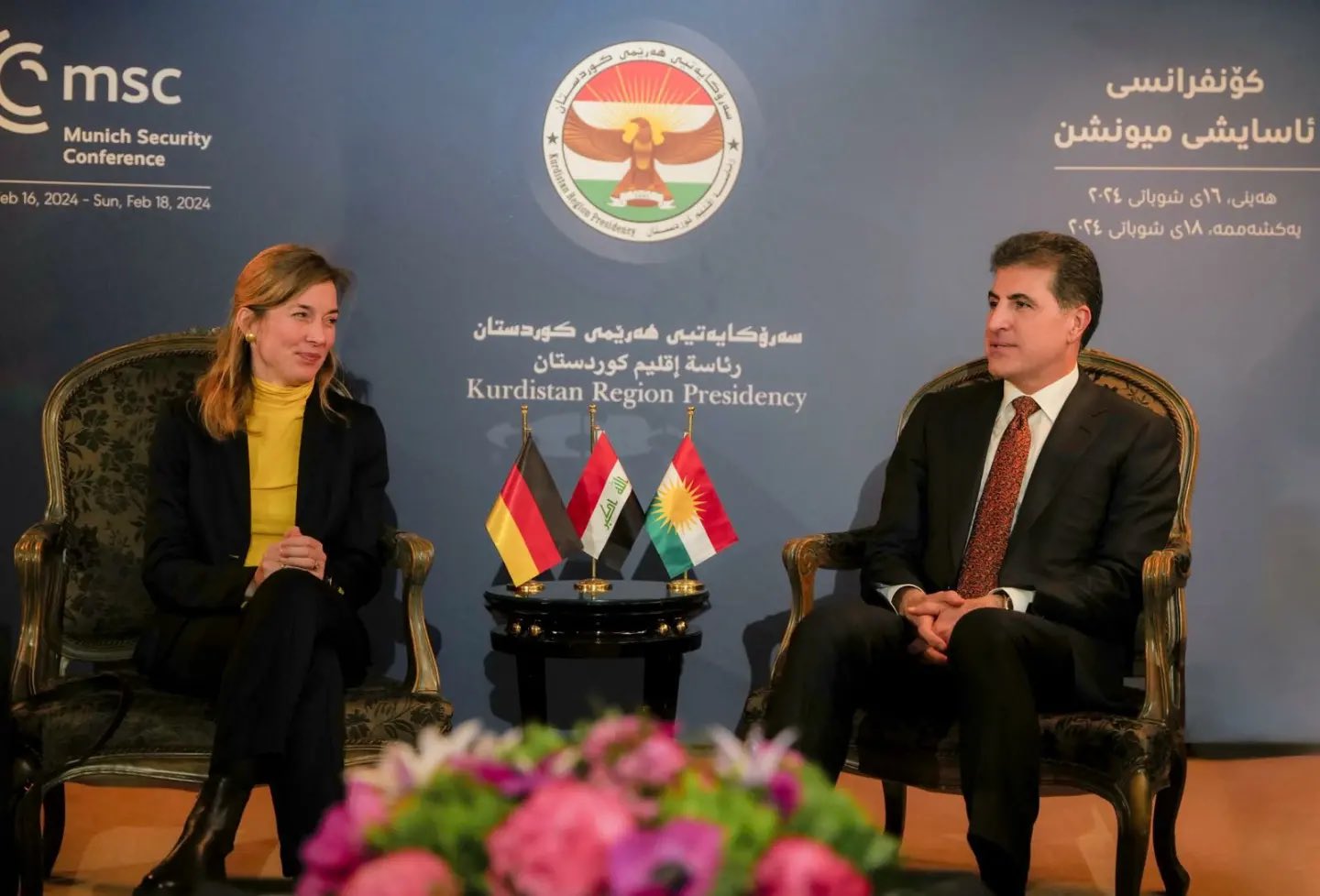
"The two sides engaged in a comprehensive discussion on the security situation in Iraq and the tensions in the wider region, emphasizing the crucial role of German forces in the international coalition against ISIS. They also highlighted the cooperation of Germany in Iraq and the Kurdistan Region," said the Kurdistan Region Presidency in a statement.
"In this regard, President Barzani expressed his gratitude to Germany for their continued support and commended the German forces for their assistance to the Peshmerga and the ongoing reform efforts within the Ministry of Peshmerga Affairs to reorganize the Peshmerga forces," it added.
President Barzani held a meeting with the Austrian Foreign Minister Alexander Schallenberg on the sidelines of the Munich conference. Both sides "reiterated their commitment to further enhance bilateral cooperation," according to the Kurdistan Region Presidency.
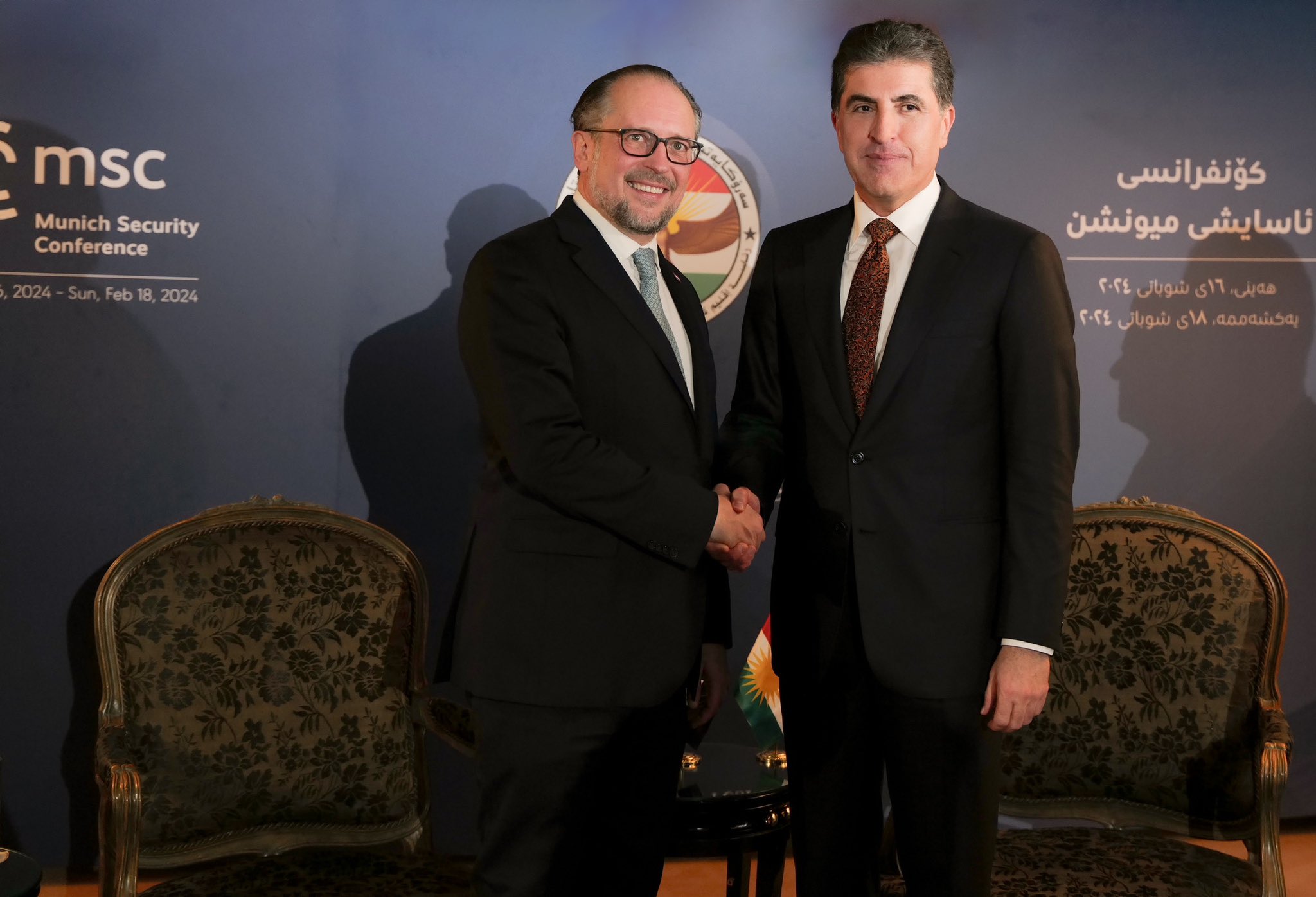
President Barzani met with Minister of State at Germany's Foreign Ministry Tobias Lindner in Munich on Friday, discussing "a wide range of issues including security concerns in Iraq and beyond, situation of Yezidis and other minorities, and upcoming KR elections," according to the Kurdistan Region Presidency.
Updated at 10:30 pm







Comments
Rudaw moderates all comments submitted on our website. We welcome comments which are relevant to the article and encourage further discussion about the issues that matter to you. We also welcome constructive criticism about Rudaw.
To be approved for publication, however, your comments must meet our community guidelines.
We will not tolerate the following: profanity, threats, personal attacks, vulgarity, abuse (such as sexism, racism, homophobia or xenophobia), or commercial or personal promotion.
Comments that do not meet our guidelines will be rejected. Comments are not edited – they are either approved or rejected.
Post a comment